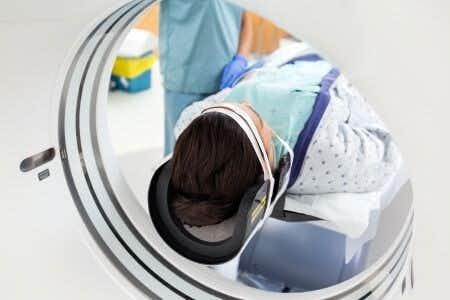This case involves a 13-year-old girl who fractured her skull while undergoing an x-ray in a university hospital in California. The girl presented to the hospital with complaints of severe nausea and a physician determined that she needed an x-ray. In the x-ray room, a radiologic technologist asked the girl to stand against the radiology board so that they could complete the x-ray. The radiologic technologist left the room so that the x-ray could begin. Immediately upon leaving the room, the technologist heard something heavy hit the floor. The girl had fallen unconscious and fractured her skull upon hitting the floor. The girl required emergency brain surgery to remove the bleeding in her brain as a result of the fracture. An expert in protocols and procedures for radiology technologists was sought to review the case and comment on how pediatric patients with symptoms such as severe nausea should undergo imaging.
Question(s) For Expert Witness
1. Please explain your experience caring for pediatric patients as a radiologic technologist.
2. What factors should be considered by a radiologic technologist when determining if it is safe or not to leave a pediatric patient unattended in the imaging room?
3. What protocols or safeguards, if any, exist to prevent a patient from falling in the imaging room?
Expert Witness Response E-263693
I have cared for a wide range of patients, including pediatric patients, as part of my duties for almost 30 years. Regardless of the patient's age, each patient needs to be assessed as a fall risk before allowing them to stand unattended. This makes me wonder why the patient was brought over on a litter, as a stable patient without fall risks could walk or come by wheelchair. If the patient is a fall risk, the exam is done either seated, if the exam allows, or portable in the patients room. There are straps on the table to prevent patients from rolling off and those same straps can be used to secure a patient when the table is upright. I would want to know why they were not used. I reviewed a similar case involving a patient who fell and fractured his mandible. He came to the hospital for a test and the tech tried to start an IV line three times with the patient sitting in a chair. The patient was pale, sweaty, claimed to feel like passing out and wanted to lie down. The tech asked the patient to stand and walk with her to a room where the patient could lie down. After a few steps, the patient lost consciousness and fall face first to the hard floor fracturing the mandible, maxilla, and knocking out a few teeth.
About the author
Wendy Ketner, M.D.
Dr. Wendy Ketner is a distinguished medical professional with a comprehensive background in surgery and medical research. Currently serving as the Senior Vice President of Medical Affairs at the Expert Institute, she plays a pivotal role in overseeing the organization's most important client relationships. Dr. Ketner's extensive surgical training was completed at Mount Sinai Beth Israel, where she gained hands-on experience in various general surgery procedures, including hernia repairs, cholecystectomies, appendectomies, mastectomies for breast cancer, breast reconstruction, surgical oncology, vascular surgery, and colorectal surgery. She also provided care in the surgical intensive care unit.
Her research interests have focused on post-mastectomy reconstruction and the surgical treatment of gastric cancer, including co-authoring a textbook chapter on the subject. Additionally, she has contributed to research on the percutaneous delivery of stem cells following myocardial infarction.
Dr. Ketner's educational background includes a Bachelor's degree from Yale University in Latin American Studies and a Doctor of Medicine (M.D.) from SUNY Downstate College of Medicine. Moreover, she is a member of the Board of Advisors for Opollo Technologies, a fintech healthcare AI company, contributing her medical expertise to enhance healthcare technology solutions. Her role at Expert Institute involves leveraging her medical knowledge to provide insights into legal cases, underscoring her unique blend of medical and legal acumen.



